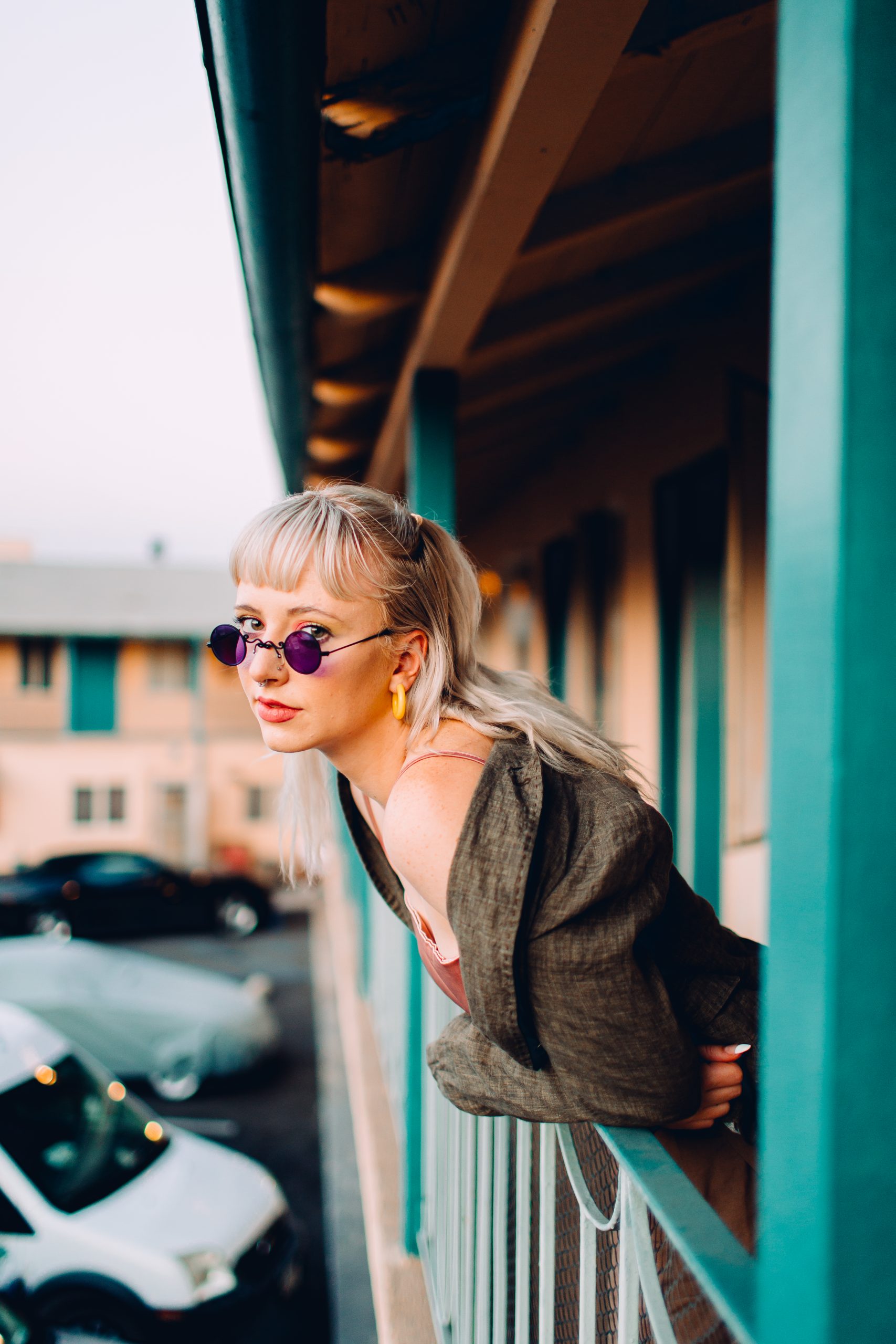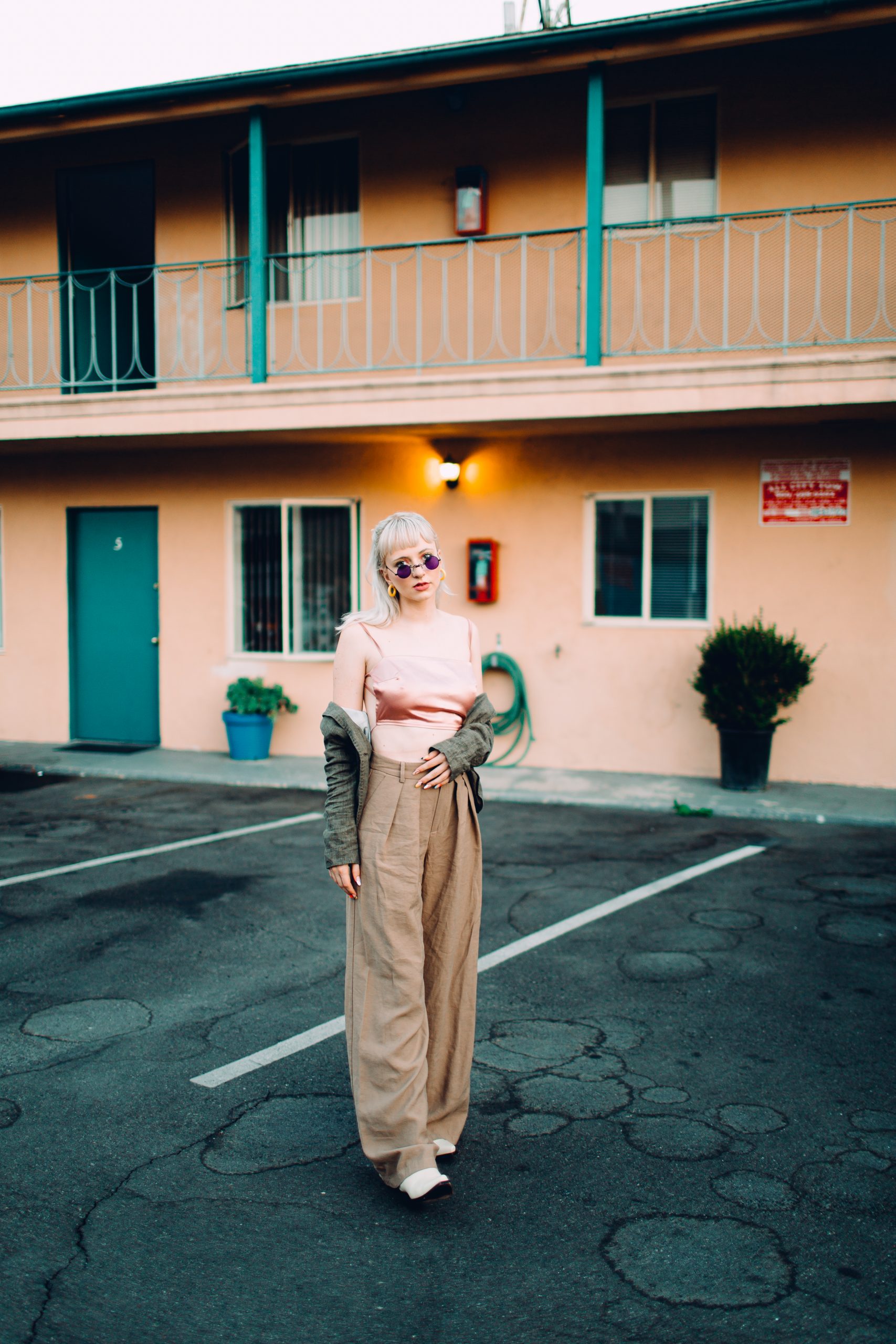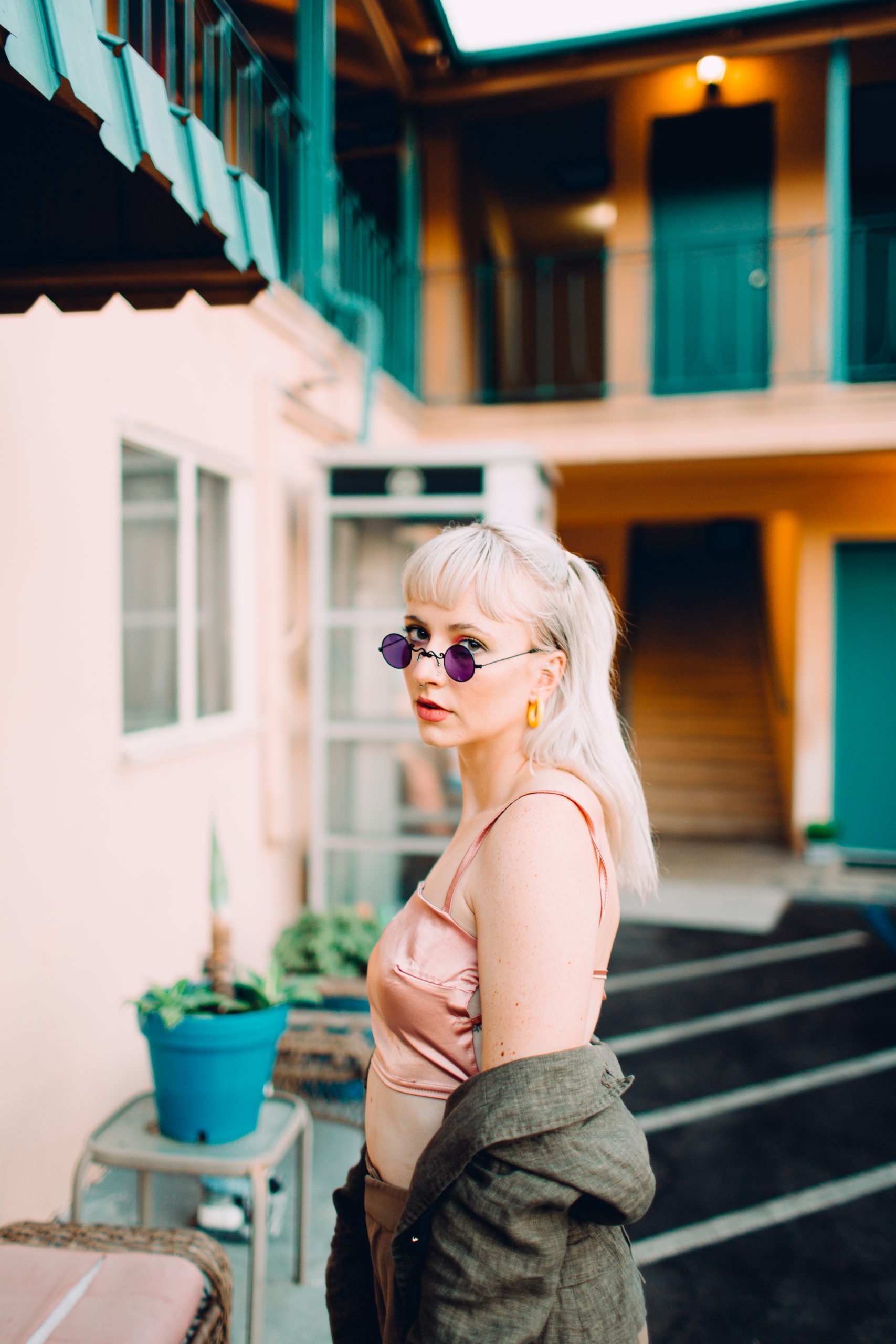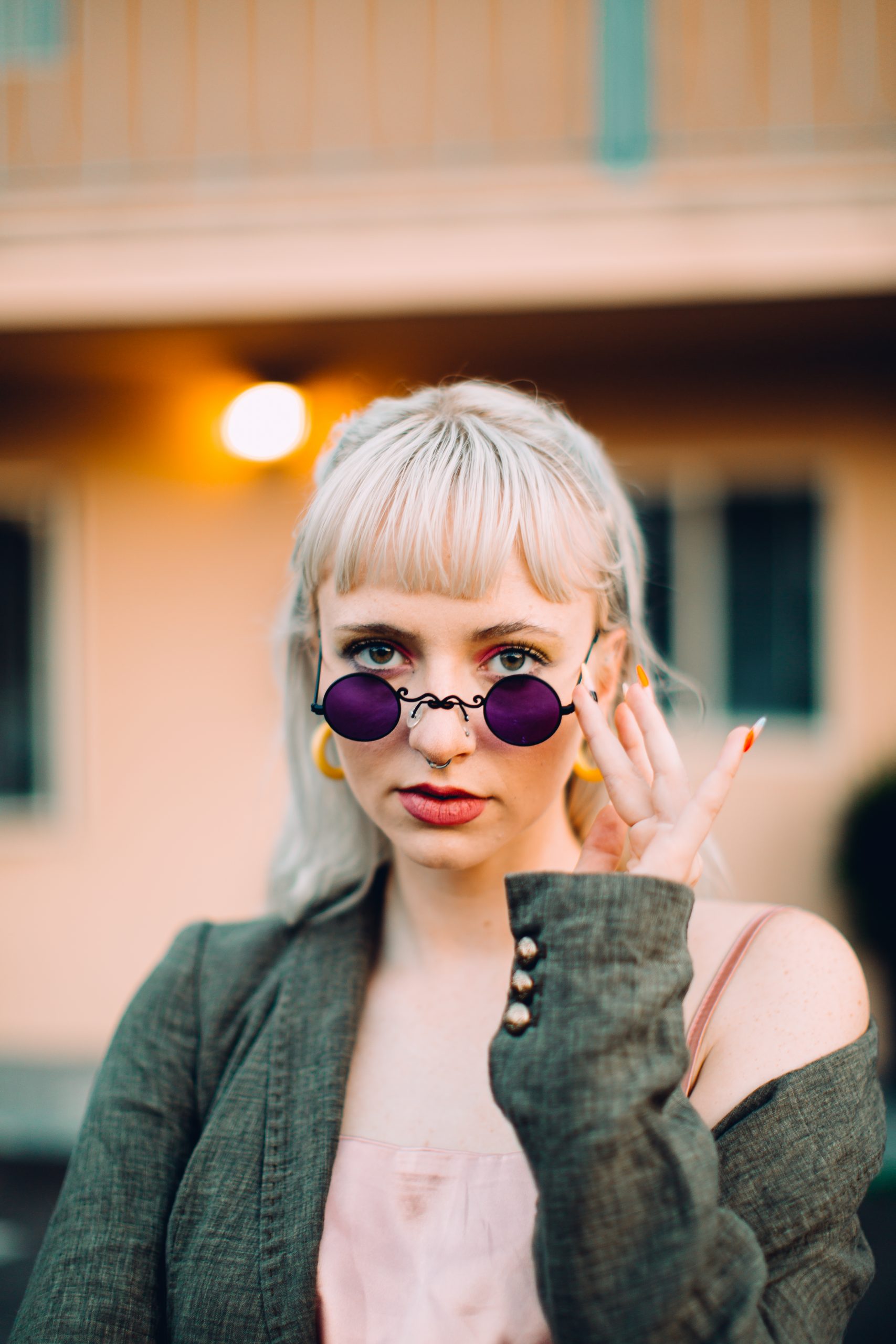MAZIE: A DIGITAL HIPPIE AMPLIFYING THE VOICE OF GEN-Z & THE NEXT WAVE OF POLITICAL ACTIVISM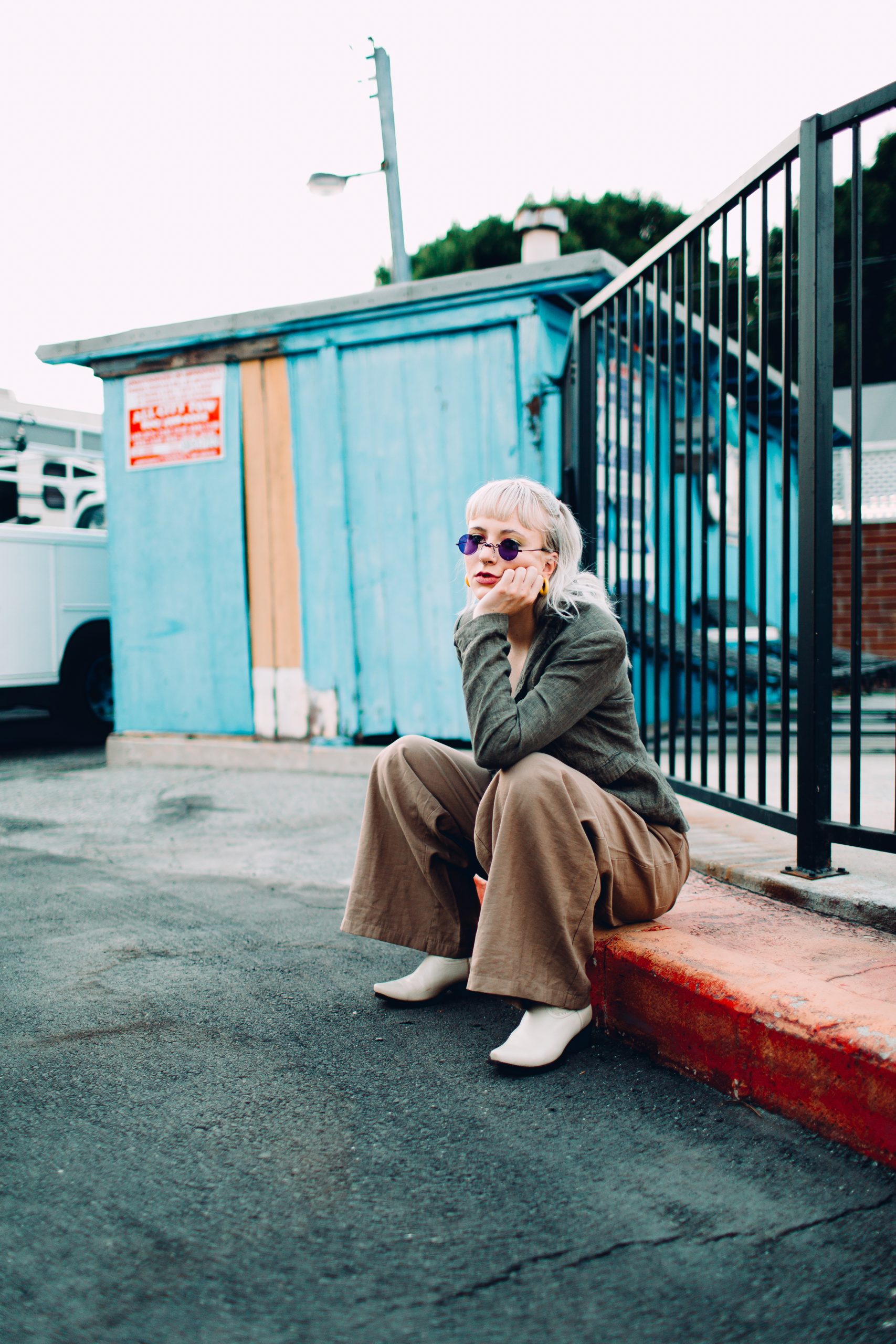
Ah, the trials and tribulations of “adulting.” At this point, the meme-able concept of this struggle is vastly overused, and yet so overwhelmingly relatable. Particularly in the younger generations. You know, those darn millennials through Gen Z, tech-savvy, possibly part robot, social media experts who came of age in an unprecedented moment in history, one that was shaped by access to the Internet from the moment these poor souls were birthed into this twisted world. I jest, I jest, but the connection between easy, instant access to the web’s wealth of knowledge and the apprehension so many members of these generations feel toward the idea of “growing up” cannot go unnoticed. That’s because the Internet and all its wonders represent a classic double-edged sword. While we have a generation struggling with mental illness at record rates, we also have an impassioned generation, aware of deeply embedded societal issues, and dedicated to social justice on a grand scale.
Here to give her two cents on this peculiar dichotomy is self-proclaimed “digital hippie” mazie. A proud Gen-Z baby and champion of utilizing the Internet for education, activism, and connectivity, mazie returns with third single to date “sippy cup” under indie label Good Boy Records. A commentary on the romanticism of childhood versus the anxiety-ridden chaos associated with transitioning to adulthood, mazie juxtaposes heavy, emotion-laden lyrics with whimsical sonorities, allowing for a rather accurate, yet abstract, representation of the fear and excitement associated with this uneasy period in life.
Currently going through that uncomfortable transition herself, mazie recently relocated to Los Angeles in pursuit of music. Growing up in the suburbs of Baltimore, Maryland, she was raised on a healthy diet of classical music and jazz, studying voice through high school. In 2015, she met soon-to-be friend, producer, collaborator and next store neighbor Elie Rizk. A fateful encounter, the two began working together in the studio, and from that friendship blossomed mazie and with it the foundation for Good Boy Records, the indie label founded by Rizk and friends, touting mazie as their first artist.
Finding her sound with Rizk and diving headfirst into the DIY-method of breaking an artist with her team of friends, mazie found instant support in the Spotify community, landing coveted editorial playlists such as Lorem, Lemonade, Fresh Finds, Softly, and Teen Beats, pushing nearly 3M spins on the first two singles alone. A project with a genuinely unique sound, making the pop listening experience a magical one, mazie proves to be a special one to watch, fit for a new age of music.
We had the distinct pleasure of catching up with mazie on everything from the inspiration she draws from the Beatles ‘Sgt. Pepper’s Lonely Heart Club Band’ to actively fighting systemic racism as an ally, and advice on integrating activism into your own life.
How did you get your start in music?
I feel like I was always singing from a very young age – whether it was to Disney movies or at church I was literally always singing. For my tenth birthday, my grandmother and mom gifted me voice lessons so I could start being classically trained in voice and I sang opera for the next nine years of my life! I was extremely involved in choir, vocal jazz, and a ton of other vocal performances all throughout high school.
Originally a classical vocalist, was there a specific experience that pushed you toward creating more pop-focused music?
I would definitely have to attribute that to meeting my producer (Elie Rizk) when I was going into my junior year of high school. As soon as I started recording in Elie’s studio my relationship with music totally changed and I became obsessed with writing and recording songs. I loved how much creative freedom there was in that process vs everything I was learning/doing in my classical training. As soon as I heard the first bounce of a song we made I knew I had to keep doing that forever.
You went to school for music business, why do you think it is important for artists to understand the business?
YES, I think it’s so important for artists to be at least generally knowledgeable about the industry and especially of different revenue streams an artist can make money from. I am definitely very privileged to have been able to study music business at school but there are still so many accessible ways artists can learn about the industry. Even just googling “best music industry textbooks” can provide so many resources for artists to use
What is the most important biz related matter you think artists overlook, which could change the course of their career?
I would definitely say understanding copyright law and having a good understanding of the master vs publishing. It’s extremely boring but the most important to understand. And as I mentioned before, knowing all the different revenue streams is so important especially for indie artists who aren’t going to be seeing a big check from a label anytime soon.
Your music incorporates an array of quirky sounds and musical ideas, how do you find your inspiration for the “odd” side of the sonic spectrum?
The Beatles’ ‘Sgt. Pepper’ album completely changed how I thought of creating music. I was so blown away by the bizarreness and creativity of that album and how it still translated into a massively successful commercial release. It just made me realize I should always be trying to push my music sonically and really try and create something that doesn’t quite exist yet. I definitely have a ways to go with that but I’ve been having an insanely fun time in the studio trying to get there. I also want to give so much credit to Elie for being able to craft this world and atmosphere with me in the music – he is truly the best and the songs wouldn’t be where they are without him.
Tell us about the inspiration behind “sippy cup?”
“sippy cup” really plays on the feeling of romanticizing childhood and simpler times. The song really tries to capture the feelings of racing thoughts, anxiety, chaos – all the things I associate with transitioning into adulthood. even though the lyrics are pretty heavy i still want to convey a sense of hopefulness and happiness through the upbeat whimsical production
“sippy cup” is your third single to date, might there be a full-length project in the near future?
Yes! I’m working on putting an EP out at some point next year 🙂
Other than music, social activism is a major passion of yours. Tell us about your experience with the resurgence of the Black Lives Matter movement.
I definitely do not want to center myself in the conversation about the Black Lives Matter movement. But I will definitely speak to how much I have been learning about Anti-Racism and true political activism over the last seven months. I feel as though I’ve actually created the time in my life to actively dedicate towards educating myself via Abolitionist and Marxist theory instead of educating myself through the Internet and social media – while also making Anti-Racism a daily practice in my life. Which, by the way, is an incredibly privileged thing to even say in the first place.
I have been extremely humbled by everything I have learned thus far and am constantly blown away by how much white supremacy and patriarchy both consciously and subconsciously affect mine and others’ lives. I really encourage other white people to stop centering white voices in conversations about race in America. Stop listening to your parents, grandparents, and white news pundits who are attempting to summarize an experience they have never lived. Start centering the experiences and voices of those whose lives are directly impacted by institutionalized racism. Also, I think it’s so important to understand that political activism is NOT what you are posting and vocalizing but only the tangible work you are doing within a community. It’s a huge step to start having the conversation about racism in the US – but that means nothing when you don’t do anything beyond that. Check out local orgs that focus on houselessness, food insecurity, drug abuse, mental health, healthcare, a world without police, childcare, women, and so so much more. All of these organizations are so accessible and just a google search away from being a part of your life. And if you can’t spend your time, at the very least spend your money on supporting an org you want to get behind.
In your opinion, what are the three most important areas of change needed in our society today to fight systemic racism?
-
De-centering white people from all conversations about race. I am a firm believer that racism in the US is largely a white person problem to solve. However, white people are not entitled to centering themselves in a conversation about race. Our job right now is to be learning, internalizing, and utilizing our position in society in order to advance an Anti-Racist agenda.
-
Changing the United States’ relationship with Capitalism. At the root of every social issue is a problem with Capitalism — racism included. Housing, education, prisons, policing, environmental racism etc. are all affected in some way by profit-driven practices. It’s no coincidence that our healthcare, education, public housing, and prison systems are a complete failure in the United States.
-
Representation. And I don’t mean representation by seeing more people of color fill white roles. I feel like I have a VERY comprehensive grasp on the white male psyche and experience by virtue of almost every form of popularized media centering a white man’s experience. My entire life has been culturally shaped by a white man’s fantasies, psychology, and experience. It’s time that everyone else has an opportunity to be centered and celebrated in that way. I don’t want to see white producers, writers, directors, etc. creating roles for people of color. I want to see people of color being able to create the stories and narratives that they themselves want represented. Because not only is this a fantastic way to understand an experience and psychology different from your own, but to also start breaking these molds and caricatures that society has made POC out to be.
Do you think the Internet is more harmful or helpful to our progression as a society?
That’s definitely a loaded question – I am sure that there is an equal amount of harm done to society as there is progress being made because of the Internet. However, I have to say the Internet has accelerated so many conversations about our world and society and has exposed everyone to so many different perspectives and life experiences. Those things would have never happened had the Internet not existed and I am eternally grateful for being able to use the Internet to learn and have access to so much information. I think it’s honestly the greatest gift humanity has given to itself – but I am also extremely cautious about where it might progress in the future.
How do you think the world might change when those who grew up with the Internet begin to fall into positions of political power?
Just looking at the way Gen Z it is now makes me so f***ing excited for this generation to grow up and shape the world as they see fit. There has never been a generation to have this much access to information before and I see so many young people developing extremely nuanced opinions that have taken me years into my adulthood to discover. I love Gen Z with all my heart and hope their desire to learn and create change in the world is sustained into their adult lives.
For those looking to get more involved in social activism, do you have any resources you’d recommend? (books, podcasts, websites, etc.)
Two words: Angela Davis. Angela Davis is one of the most prolific thinkers and writers to ever exist. Her writing is so accessible and covers so many different facets of Anti-Racist and Anti-Patriarchal ideology. I’m currently reading her book “Women, Race, and Class” but also highly recommend her book “Are Prisons Obsolete?”. I’ve also really been loving the Code Switch podcast on NPR.
I also encourage people to ask themselves: Who am I listening to that is speaking on racism? Am I aware of the ways in which I uphold white supremacy on a regular basis? Do I have a full understanding of the ideologies that I am posting about on social media? Have I done research beyond the information I find on the Internet? What could I be doing more of?
With the election only a few weeks away, do you have any advice for young voters out there?
I don’t have much advice other than VOTE!!!!!!!! And to know that if Joe Biden is elected, we have an immense amount of work ahead of us to reverse the last four years of this administration. Your political participation should not stop at voting.

